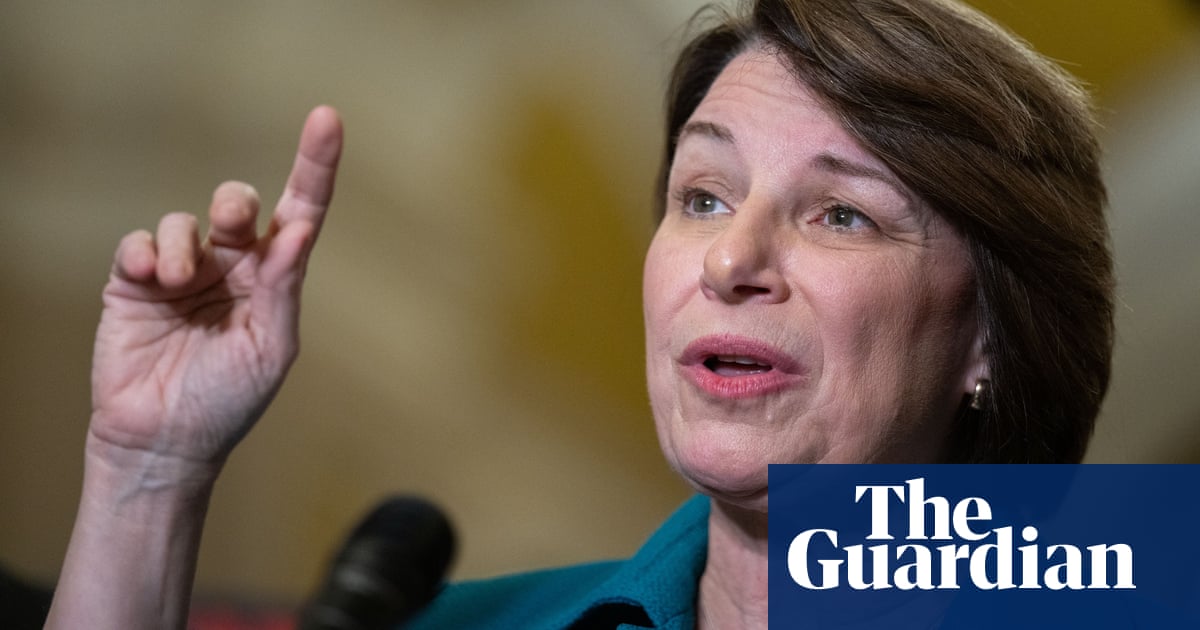Xi Jinping has been preparing for Trump’s trade war for 12 years - it may not have been long enough

Open this photo in gallery: Chinese President Xi Jinping has pursued a policy of economic security and self-reliance, reducing his country’s exposure to the U.S. since taking office. Mr. Xi speaks during a meeting with Spanish Prime Minister Pedro Sanchez, in Beijing, on April 11.ANDRES MARTINEZ CASARES/The Canadian Press Speaking alongside Chinese leader Xi Jinping at the White House in 2015, U.S. President Barack Obama insisted Washington did not seek to contain Beijing’s rise as a global power, noting it was “in the interests of the United States to see China grow.” Safe to say, Mr. Xi never believed him. From the moment he took office in 2013, China’s strongest leader since Mao Zedong has been preparing for what he sees as an inevitable break with the U.S. As he watched multiple leaders come and go from the White House, with varying degrees of hostility toward China, Mr. Xi has pursued a policy of economic security and self-reliance, reducing his country’s exposure to the U.S. and ensuring China can produce key technologies domestically. China ‘not afraid,’ Xi says, as Beijing raises tariffs on U.S. goods to 125% “Our struggle and contest with Western countries is irreconcilable, so it will inevitably be long, complicated, and sometimes even very sharp,” Mr. Xi has been quoted as saying in a People’s Liberation Army textbook. That approach appeared to be vindicated this month, as a trade war launched by U.S. President Donald Trump has spun out of control, with Chinese exporters now essentially shut out of the American market and Washington seeking to isolate Beijing on the global stage as it cuts deals with other countries for tariff relief. So far, Mr. Xi has shown no signs of blinking. Domestic propaganda has focused outrage on the U.S. and emphasized China’s ability to weather the storm. But the Chinese economy was already vulnerable before the trade war, and attempts to rebalance exports away from the U.S. will exacerbate concerns about Chinese goods flooding markets elsewhere. “At the end of the day, the entire mission that Beijing has pursued over these last years has been to prepare for aggressive decoupling with the U.S. if that need emerges,” said Jacob Gunter, lead economic analyst at the Berlin-based Mercator Institute for China Studies. “There has been a big self-reliance push, becoming less dependent on exports to the U.S., pursuing technological self-reliance, and China has made strong advancements in many of those areas but is still really vulnerable.” For his part, Mr. Trump – while battering China with repeated tariff escalations – has encouraged Mr. Xi to come to the table. “China wants to make a deal. They just don’t know how quite to go about it,” Mr. Trump said this week. “You know, it’s one of those things they don’t know quite – they’re proud people.” Open this photo in gallery: A trade war launched by U.S. President Donald Trump has spun out of control, with Chinese exporters now essentially shut out of the American market. Mr. Trump meets with Mr. Xi during the G20 leaders summit in Osaka, Japan, on June 29, 2019.Kevin Lamarque/Reuters Beijing has signalled it is open to negotiation, but so far the two sides have been talking past each other, with each waiting for the other to make the first move. According to CNN, Mr. Trump’s team has made clear to China that they expect Mr. Xi to request a phone call with the President, something Beijing has so far been unwilling to do, given the potential negative optics of Mr. Xi as supplicant. “Pressure, threats and blackmail are not the right way to deal with China,” Chinese Commerce Ministry spokesperson He Yongqian said Thursday. “We hope that the two countries will meet each other halfway and work towards resolving differences through dialogue and consultation, guided by the principles of mutual respect, peaceful co-existence and win-win co-operation.” Communication has not been helped by the lack of a trusted back channel between Washington and Beijing, as there was during the Joe Biden administration and even Mr. Trump’s first term. The White House rebuffed attempts by Chinese Foreign Minister Wang Yi to handle talks over trade, believing that he does not have sufficient seniority or closeness to Mr. Xi. This has resulted in a public game of chicken, with both sides blaming the other for each escalation, while refusing to discuss a potential off-ramp. “Of course Beijing does not want this trade war since its economic well-being is so dependent on international trade and investment,” said Alfred Chan, professor emeritus at Huron University College and author of a biography of Mr. Xi. “Yet, currently, there is no possibility that Beijing would capitulate to the U.S.” No country, especially a major power, wants to be “seen to be pushed around or coerced into doing something against its will,” and this is compounded in China by the narrative of the “hundred years of humiliation,” Prof. Chan said, the period at the end of the Qing Empire when foreign countries carved off parts of China and forced unequal treaties on Beijing. Mr. Gunter predicted Beijing will double down on public resistance – and Chinese officials have indicated there are numerous further retaliatory measures they are considering – while continuing to seek talks with the White House, and maybe quietly reducing tariffs on certain key U.S. technologies that the Chinese economy still depends on. Whatever the result of the next weeks and months, however, one thing is clear: The relationship between Beijing and Washington has shifted fundamentally from the friendly rivalry pursued by Mr. Obama – and to a lesser extent Mr. Biden – to all-out competition. How much competition China can bear is unclear. Already, the country’s economic growth had been slowing, and long-standing structural issues – including a shaky housing market, high unemployment and local government debt – were starting to be felt. Efforts to pivot away from an export-oriented economy and boost domestic consumption have been redoubled, but are yet to show much effect, and Mr. Xi is known to be hostile to expanding welfare spending in a way that would enable ordinary Chinese to open their wallets, instead lecturing his people to “eat bitterness.” At the same time, the U.S. is also highly reliant on Chinese goods and manufacturing, and the costs of the trade war will be felt on both sides of the Pacific. Beyond the market chaos of recent weeks, Thursday saw a spike in the sale of U.S. Treasuries, of which China is a major holder. While Mr. Trump has shown himself more willing to bear economic turmoil than in his first term, China’s authoritarian political system means Mr. Xi does not need to worry anywhere near as much about negative public opinion – nor is he facing any elections in coming years. Indeed, one silver lining of Mr. Trump’s trade war for Beijing is that it provides an easy propaganda message for any future difficulties. John Rapley: Does Donald Trump really think he can win a trade war against China? “All the economic problems will now be heaped up and placed upon the United States,” Mr. Gunter said. While public opinion is difficult to track in China due to pervasive censorship and concerns about criticizing the government publicly, there does appear to be support for Beijing’s hard-nosed approach so far. “China has no reason to back down,” said Gu Shaoyi, who works in advertising in Beijing. “Anyone who has studied modern history knows that once you take a step back, you will keep retreating.” Ms. Gu said she believed the U.S. “underestimates China’s determination to counterattack, and also underestimates our unity.” Bruce Chen, a fitness coach in the capital, said “you can’t let yourself be bullied.” “Of course, I still hope a U.S.-China decoupling doesn’t happen, because less uncertainty means everyone can focus more on making money,” he said. “But when someone steps on your head, that’s a different matter. For now, I still support our government’s decisions, fight it out and time will give an answer.” The worst case scenario for China is one where the U.S. successfully isolates Beijing internationally, and even presses other countries to adopt similar tariffs against Chinese goods as part of a trade deal with Washington. Initially, Mr. Trump’s “Liberation Day” measures, in which he slapped almost every country in the world with stringent tariffs, played into Beijing’s hands. Chinese officials were quick to reach out to the European Union, Japan, South Korea and other affected major economies, as all sought a potential counterbalance to lost U.S. trade. But the suspension of those measures, along with a ramping up of total tariffs on China to 145 per cent, has left Beijing spinning. While talks are ongoing with the EU, and Mr. Xi is heading on a tour of Southeast Asia next week, it is unclear how willing other countries will be to strike any kind of deal with China if it might come at the cost of trade with the U.S. “China will be in a very precarious position, because in terms of the economic relationships that any given third country has, if forced to choose between the U.S. and China, they will likely lean towards the very big U.S. market,” Mr. Gunter said. Part of that is due to China’s own economic model, with a focus on exports and limited consumption. A trade deal with China currently likely results in limited access to a consumer market smaller than the U.S., while opening the floodgates for Chinese exports that could displace domestic manufacturing. Even before this year, many countries had been raising barriers to cheap Chinese goods and expressing concerns about overcapacity, which will only be exacerbated once the US$430-billion or so in exports that would usually go to the U.S. have to find other markets. “Those economic fundamentals are still going to be at play and may accelerate,” Mr. Gunter said. “It will force a lot of actors to raise their own barriers. That’s going to really hurt the Chinese economy going forward. They’re taking a punch to the gut losing the U.S. market, and then a lot of little jabs from other countries.” The great fear as the U.S.-China trade war escalates is how hostilities may spill over into other aspects of the relationship. Mr. Trump and his officials have said there is a need to “re-establish” military deterrence against China in the Pacific, and cited fears about Chinese influence in Panama and Greenland as justification for territorial expansion. Under Mr. Xi, China has massively expanded his country’s military and is currently engaged in stand-offs in the South China Sea with multiple countries and over the self-ruled island of Taiwan, around which the People’s Liberation Army staged large-scale war games this month. Since January, U.S. tariffs on China have risen from 10 per cent to 145 per cent, while Beijing has imposed reciprocal measures of 125 per cent, with neither side blinking or willing to come to the table. A similar rapid escalation in military tensions could have repercussions well beyond the bilateral relationship. On Thursday, Chinese Foreign Ministry spokeswoman Mao Ning shared a video of a speech by Mao Zedong during the Korean War, known in China as “the War to Resist U.S. Aggression.” “We are Chinese,” she wrote in her social media post. “We are not afraid of provocations. We don’t back down.”


















